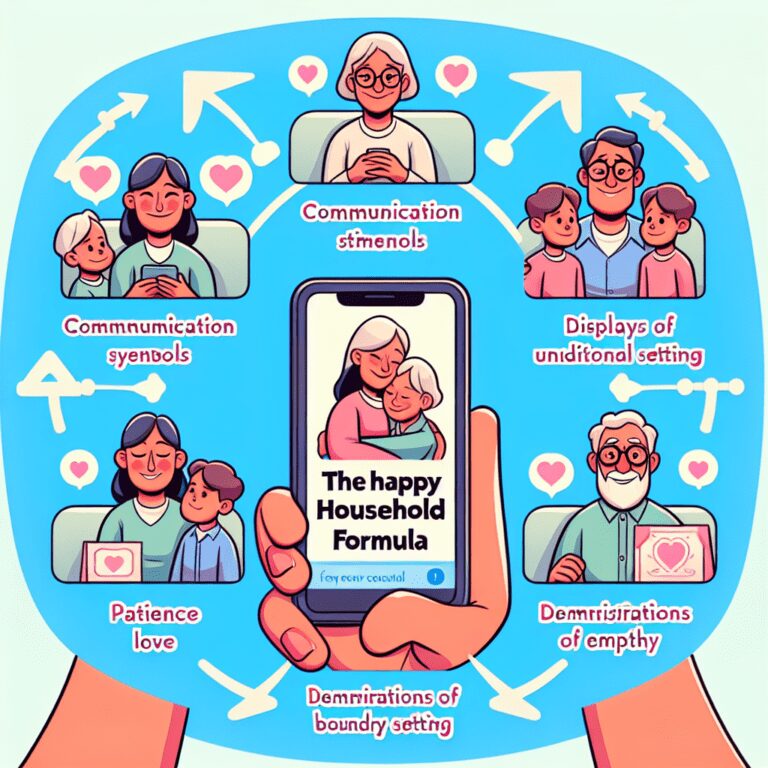The Great Debate: Should You Enroll in Parenting Classes Before Baby’s Arrival?
Entering the realm of parenthood is one of life’s most beautiful journeys, yet it can also be overwhelming. For many soon-to-be parents, the excitement mingles with uncertainty, leaving them to question whether they’re truly ready for this monumental shift in their lives. One hot topic that has surfaced in many discussions is whether enrolling in parenting classes before the baby’s arrival is beneficial. As a Life Coach, I’m here to walk you through this great debate thoughtfully, systematically, and compassionately. Let’s delve into nine crucial chapters that highlight various aspects of this topic!
1. The Rising Popularity of Parenting Classes
In recent years, parenting classes have gained immense popularity. From childbirth education to infant care, these classes are designed to equip expecting parents with essential skills and knowledge. They offer a supportive community and a platform for sharing experiences, fears, and hopes. But why are more and more parents opting for these classes?
Research indicates that proper preparation can not only boost parental confidence but also enhance the overall experience of childbirth and childcare. Classes provide tools and resources that pave the way for a smoother transition into parenthood. They also foster a sense of connection among participants, creating lasting friendships built on shared experiences.
2. What Do Parenting Classes Cover?
Before you decide whether these classes are right for you, it’s essential to understand what they typically cover. Most parenting classes include a mix of:
-
Childbirth education: Understand the stages of labor, pain management techniques, and what to expect during delivery.
-
Infant care basics: Learn how to change diapers, bathe a newborn, and understand feeding routines.
-
Breastfeeding guidance: Explore the benefits of breastfeeding, techniques, and addressing common challenges.
-
Basic first aid: Knowing how to respond to emergencies can make a significant difference in your baby’s safety.
-
Emotional well-being: Classes often touch upon the mental and emotional aspects of parenthood, including postpartum depression.
Understanding these foundational elements is crucial to making an informed decision.
3. The Psychological Benefits of Preparation
One of the often-overlooked advantages of enrolling in parenting classes is the psychological benefit of preparation. Expecting parents can deal with anxiety and fears by gaining knowledge. When armed with the right information, you can approach parenthood with a sense of confidence rather than trepidation.
By understanding what to expect during labor and delivery, you can alleviate some of the anxiety surrounding the unknown. The knowledge gained from these classes empowers parents, enabling them to trust their instincts while exploring the new dynamics of their roles.
4. The Cost of Parenting Classes
Of course, there is a financial component to consider. Parenting classes come at various price points, from free community programs to expensive workshops held by well-known experts. The cost can range from nothing at all for local community classes to hundreds of dollars for specialized training.
While it’s vital to acknowledge your budget, consider this expense as an investment in your family’s future. Investing in parenting classes can yield long-term benefits for both parents and children, fostering a rich, supportive environment during a critical development period.
5. The Flexibility Factor: Online vs. In-Person Classes
Another significant consideration is the mode of instruction. In today’s technologically savvy world, many parenting classes are now offered online. This flexibility allows expectant parents to learn at their own pace and from the comfort of their homes. However, in-person classes offer unique benefits, such as the ability to interact directly with instructors and connect with other parents, sharing their experiences face-to-face.
Think about what environment would suit your learning style best. Are you more comfortable asking questions online, or do you prefer in-person engagement? Choose the format that resonates most with you!
6. Alternative Resources
In addition to structured classes, numerous resources are available to prepare for parenthood. Books, podcasts, online forums, and parenting blogs offer diverse perspectives and information. Some parents feel that they can gather ample knowledge from these alternative resources and feel adequately prepared without formal classes.
While these resources can complement formal education, they may not provide the same structured guidance that classes offer. Being informed and resourceful is crucial—explore all avenues available to you before making your decision.
7. The Role of Instinct in Parenting
It’s essential to remember that despite all the classes and information, the foundation of effective parenting stems from instinct. Many new parents, armed with love and intuition, navigate parenthood with great success without formal training. While education can fortify your confidence, parenting ultimately involves learning through experience.
Each child is unique, and every parenting approach may differ from family to family. The techniques you learn in classes may serve as handy tools, but remain flexible and trust your instincts to guide your parenting journey.
8. The Final Verdict
So, should you enroll in parenting classes before the arrival of your little one? Ultimately, the answer lies in your unique circumstances, preferences, and comfort levels. If you are feeling overwhelmed or underprepared, taking a class can provide a structured, reassuring foundation. However, if you trust your instincts and have access to quality information and support, you may be perfectly capable of navigating parenthood without formal classes.
Consider these questions to help guide your decision: Are you anxious or unsure? Do you prefer a structured learning environment? Would you benefit from peer support? Taking the time to assess your feelings and needs will lead you to the right choice for your family.
Conclusion
The decision to enroll in parenting classes before your baby’s arrival is a personal one, steeped in various factors, including individual learning styles, financial considerations, and emotional readiness. Remember, becoming a parent means growing, learning, and adapting, regardless of whether that journey starts with formal training. Trust yourself, seek knowledge when necessary, and embrace the beautiful chaos that is parenting. Your instinctual wisdom combined with the resources you choose will make for a profoundly enriching experience.
FAQs
1. Are parenting classes necessary for first-time parents?
While they are not strictly necessary, many first-time parents find that classes can help reduce anxiety and provide valuable information.
2. How long do parenting classes typically last?
Most classes vary in length; they can be a few hours to several weeks, depending on the topic and program structure.
3. Can I find parenting classes online?
Yes! Many organizations offer online classes that allow you to learn from home at your convenience.
4. How much do parenting classes typically cost?
Costs can vary widely, from free community programs to several hundred dollars for specialized classes.
5. What if I can’t attend a class before my baby arrives?
Many resources, such as books and online videos, can provide valuable information, and it’s acceptable to learn after your baby’s arrival.
6. Do parenting classes cover emotional aspects of parenthood?
Yes, many classes address not only the physical but also the emotional challenges that come with parenting, including postpartum mental health.
7. Can I take parenting classes with my partner?
Absolutely! Many classes encourage participation from both parents to foster a collaborative approach to parenting.
8. What if I feel comfortable in my parenting skills without attending a class?
That’s perfectly okay! As long as you feel prepared and have resources available, you can approach parenthood at your own pace and comfort level.
Instantly Access Your Free Children’s Books Here! (https://payhip.com/BlueCherryStore) – Disclaimer: As an Amazon Associate, I earn from qualifying purchases, I may earn a commission from qualifying purchases as an affiliate. Please note that I only recommend products I believe will provide value to my readers. (M)









